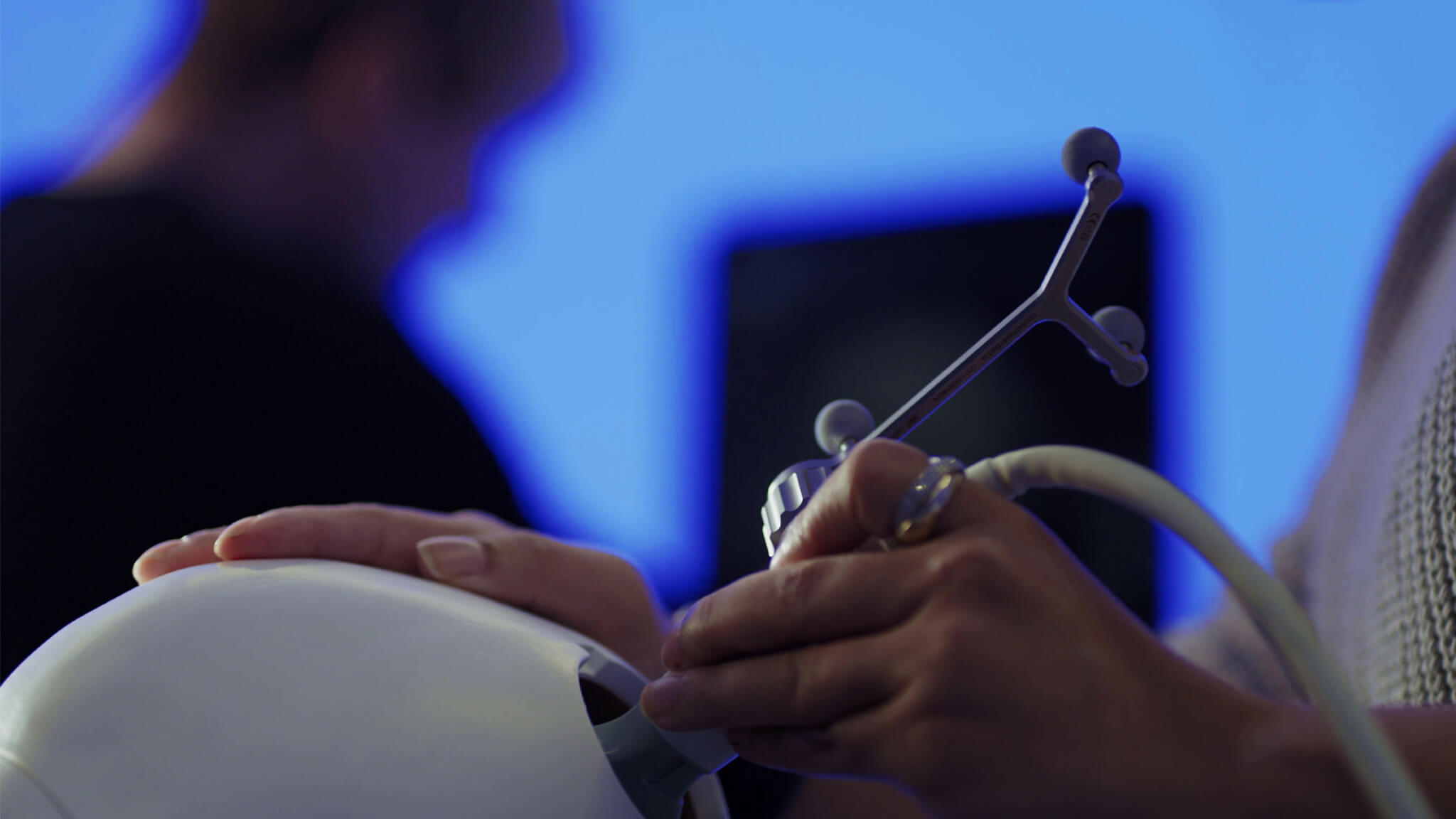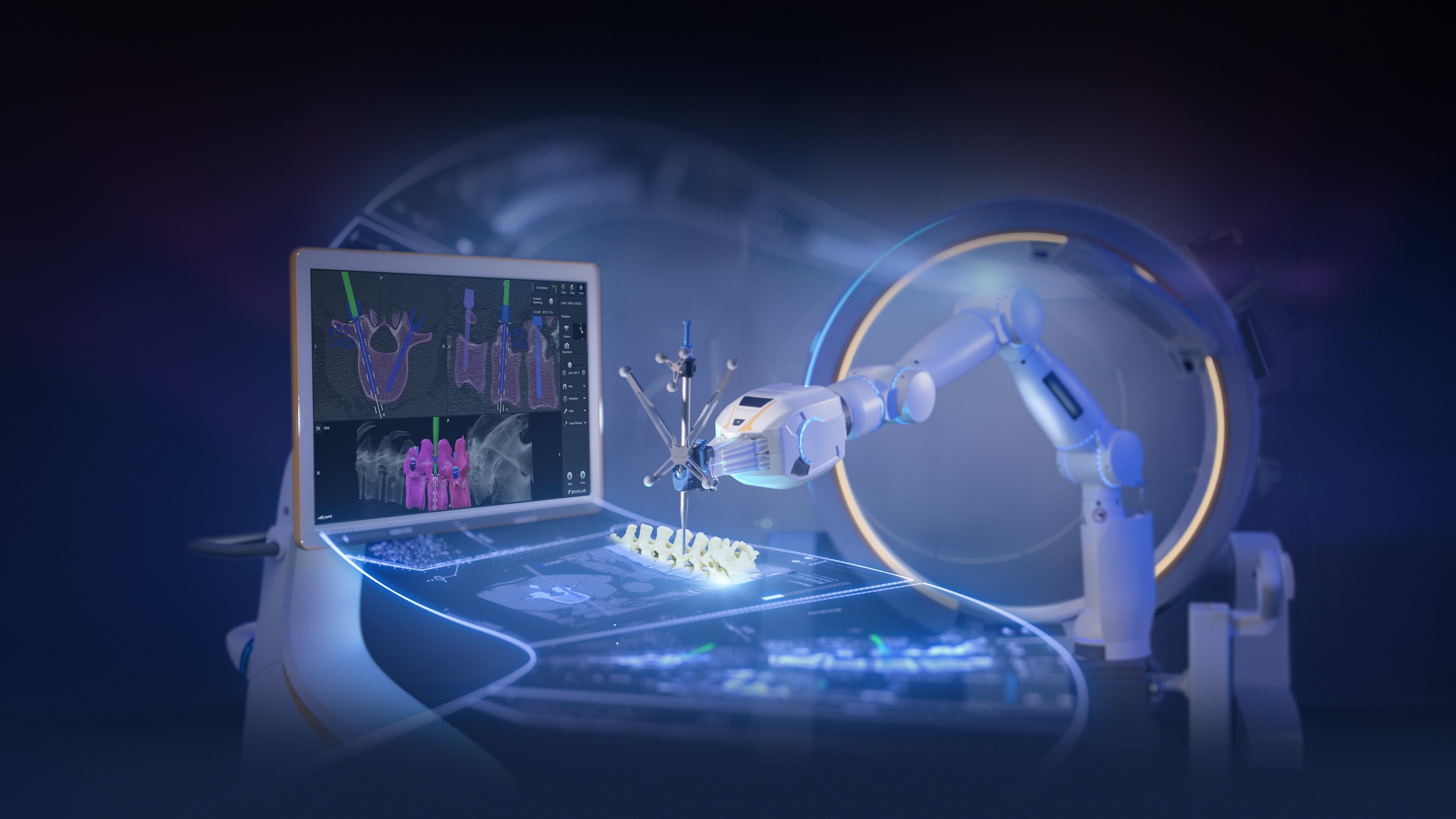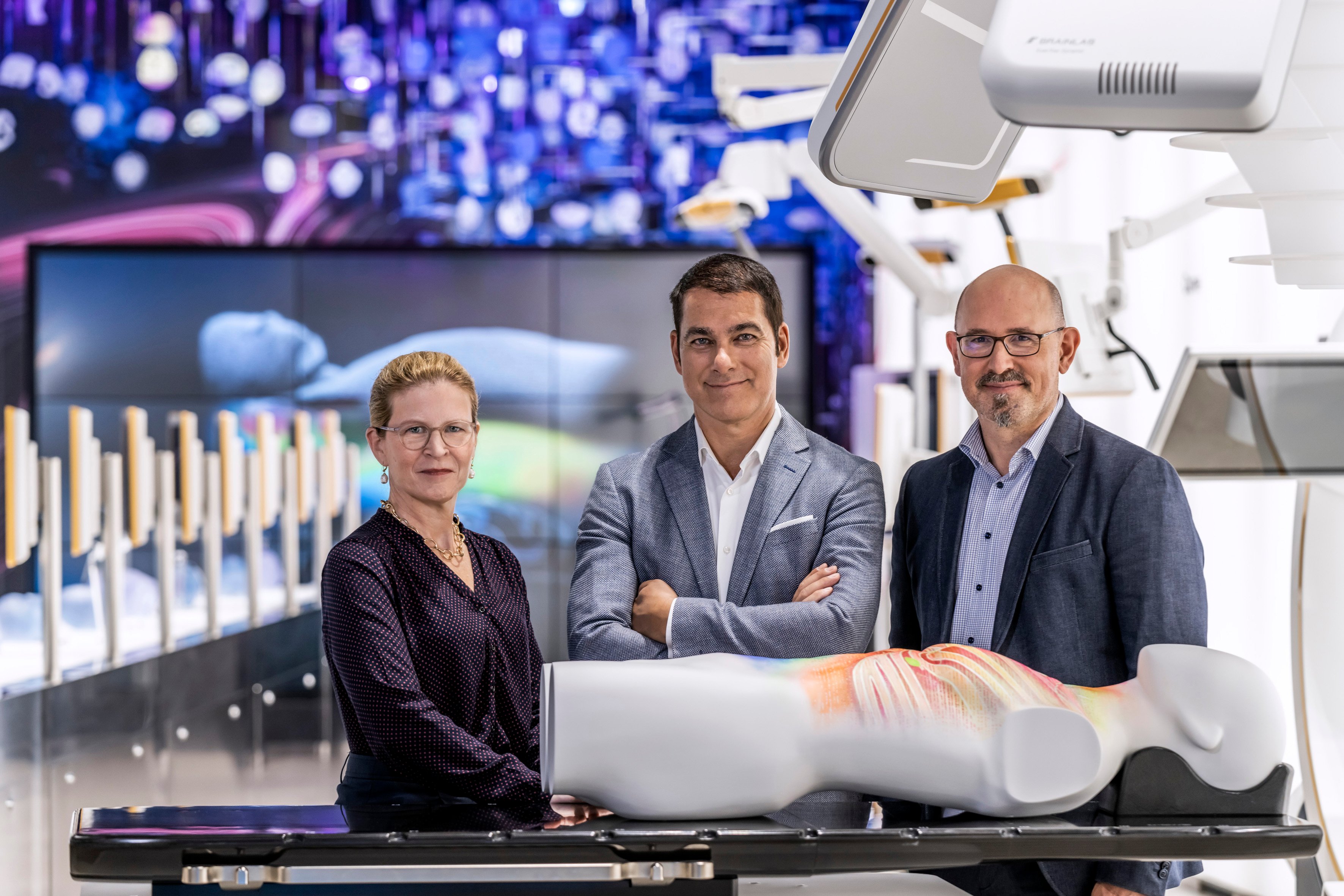At Brainlab, innovation is in our DNA and has defined the company from the start. We question the status quo every day with the overarching goal of improving treatment for patients.
Our Innovative Power
at a Glance

Ingenuity
714
active patents

Diversity
87
nationalities

Cutting-edge work
>1/3
of employees
in Research & Development
Innovation at Brainlab stems from
a diverse workforce, the cutting-edge work of our Research & Development department and the spirit of ingenuity that flows throughout the entire company. Our mission is to keep pushing the boundaries of medical technology to make the seemingly impossible possible.
The Future of Innovation –
Brainlab Tower Talks
Tune in to Tower Talks, where Brainlab Founder and CEO, Stefan Vilsmeier, welcomes visionary guests from business, politics, art and technology for conversations about innovation, digitalization and creativity. Tower Talks come to you from the control room of the former Munich-Riem airport tower, which is now the flagship Brainlab headquarters.
Digital Metaverse

Rony Abovitz
Rony Abovitz is founder of multiple companies including Sun & Thunder, SynthBee, MAKO Surgical and Magic Leap, an enterprise which specializes in creating head-mounted augmented reality displays that superimpose computer generated images over the real world. Rony is also a Senior Advisor at Boston Consulting Group (BCG) and is a University of Miami Mechanical and Biomedical Engineering alumnus. In 2018, Brainlab entered a strategic partnership with Magic Leap to bring spatial computing into surgical planning. Even before Magic Leap and Brainlab started collaborating, Rony was already innovating in the field of medical technology with the company he founded, MAKO Surgical, which was acquired by Stryker for $1.65B USD.

Richard Taylor, Sir
Five-time Oscar winner Sir Richard Taylor is co-founder of Weta Workshop, a Wellington, New Zealand-based special effects company. His work includes special effects for blockbuster films like Avatar, the Hobbit and Lord of the Rings, and he is the Magic Leap’s Arts Ambassador to China. In 2010, he became a “Sir” when he was promoted to Knight Companion in the New Zealand Order of Merit for his service to film.
More Talks
Shaping the Future –
Brainlab Innovation Talks
Stay tuned for an upcoming video series covering innovative topics and featuring Stefan Vilsmeier.
Mixed Reality
The Brainlab mixed reality solutions make it possible to not only view patient images two-dimensionally on a monitor but to also view them three-dimensionally in the middle of any room.
Created based on digital patient data, an anatomically accurate, digital “twin” of any patient can be viewed and examined from all sides. In general, mixed reality enables a completely new type of interaction between medical professionals, their patients and patient data.
Mixed Reality Viewer Revolutionizes Everyday Surgical Practice
The Brainlab Mixed Reality Viewer is one of the first solutions to enable this kind of interaction. It revolutionizes the planning of surgical interventions as well as the consultation of patients, the teaching and training of medical staff and, last but not least, the work in the operating room itself. The indication-specific 3D views allow for individual representations and perspectives tailored to the respective surgical intervention.
In the future, interacting with patient data should be as easy as interacting with the patients themselves. The Brainlab Mixed Reality Viewer is the first important step in this direction.
Digital Patient Model
Basis for Personalized Therapy:
The Digital Patient Model
The Brainlab digital patient model enables computer-assisted use of three-dimensional scans, such as CT, allowing for optimal individual treatment of each patient.
Universal Patient Model Enhanced by Data from Countless Patients
Information from several thousand images of a wide variety of patients is aggregated in the digital patient model. The image data of a specific person can then be related to this universal model.
Compared to other solutions that also recognize anatomical structures in patient scans, the Brainlab model not only maps a few selected structures but captures every single “voxel” – the 3D equivalent of a pixel.
Basis for Individual Treatment
Almost an infinite amount of information about a patient’s individual anatomy can be derived from scans. Scans offer information such as the type of tissue, elasticity, biomechanical properties and much more. Clinicians can use scans to make more informed decisions and gain an unprecedented overview which can better support the administration of personalized therapies.
Robotics
Computer-assisted and robot-assisted surgery are key technologies for the digital operating room of the future.
They provide the necessary link between the digital and physical worlds and transfer the precision and accuracy from imaging and surgical planning to the actual procedure.
Robotics for Maximal Precision
Cirq, the Brainlab robotic arm, supports surgeons in performing minimally invasive procedures. Cirq offers stable and precise positioning of surgical instruments, increases safety during surgery and has the potential to reduce treatment time and costs.
Robotic technology from Brainlab is designed to support procedures across a wide range of disciplines to benefit as many patients as possible. We strive to develop technologies that drive maximum treatment success, with robotic technology that is adaptable and meaningfully extends the capabilities of clinicians.



